Somerset Berkley's David M. Marshall On What It Takes To Direct A Show Band
Somerset Berkley's David M. Marshall On What It Takes To Direct A Show Band
David M. Marshall, the director of bands and the show choir pit band director at Somerset Berkley Regional High School in Somerset, Massachusetts, walked us through what it takes to be a show band director.
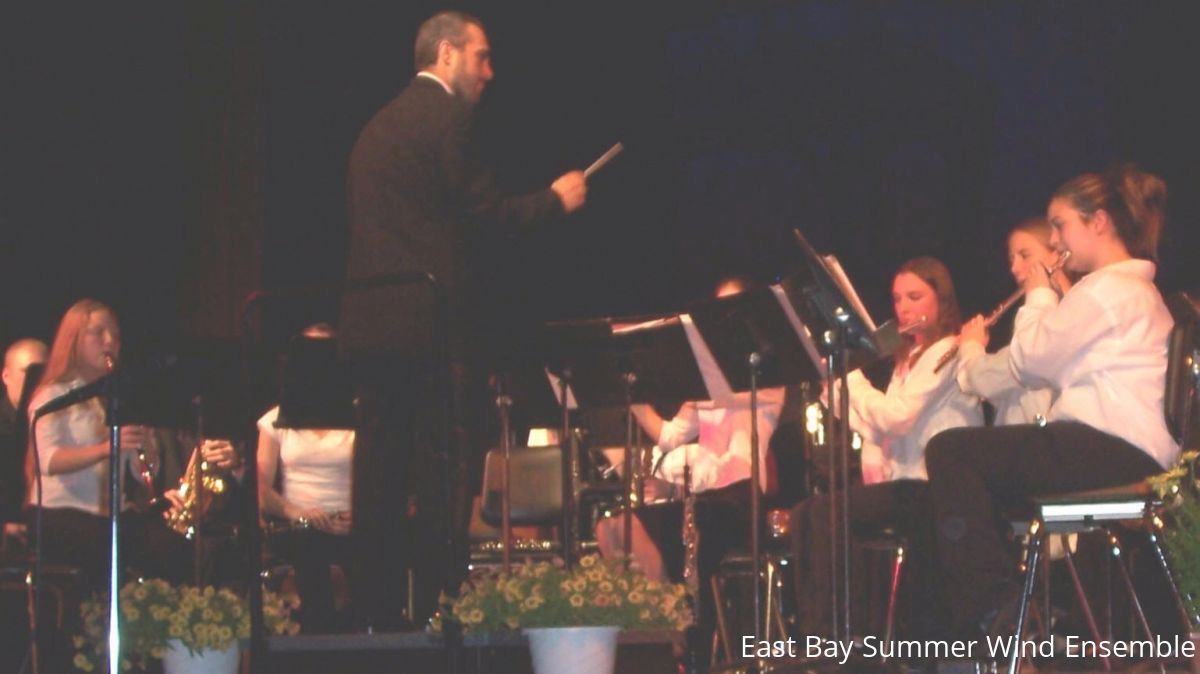
By Sam Bianco
Show choir is like an intense Broadway show condensed into 15 minutes. And, just like a Broadway show, the singers and dancers get all the credit.
But what's a show choir show without awesome dance-break music? We can't forget to give a little love to our show choir pit bands that provide all of the accompaniment to make this activity possible.
David M. Marshall is the director of bands and the show choir pit band director at Somerset Berkley Regional High School in Somerset, Massachusetts. He was the director of the Joseph Case High School show choir and show band before arriving at Somerset, so he has experience with both choirs and bands.
We recently had an opportunity to discuss David's background and learn some valuable lessons from him--check out the full interview below!
How long have you been a show band director?
Nineteen years--nine in Swansea, Massachusetts, and 10 in Somerset.
What do you like most about show choir/pit?
It's the most true-to-life, real-world music experience for the band. The band is subservient to another musical entity. They have to worry about parts, balance and blend with each other as well as balance and blend with the choir. How does the band music fit in or underscore what the choir is doing? That determines how the band plays that music.
What is the biggest challenge of being the show choir's pit band?
Again, being subservient to the choir. It's a unique listening environment. The set-up in relation to the choir needs to be such that the listening environment is centered around the drums and bass guitar. That way, the pit can more easily hear the drums and bass to be able to play together. It's also difficult for me as a director because I have to control tempo and balance of my group while simultaneously assessing the vocals that are pointed in another direction to be able to react to any situation.
How often do you rehearse?
Once a week for two hours.
What does a typical rehearsal look like?
Ten minutes of set-up and five minutes of warm-up, then five minutes of tuning. First, we discuss the previous show--how everything went, what needs the most improvement. Then, we hit the trouble spots first before running an entire song. Once the trouble spots are smoothed over, we move on to the next song and so on.
How is show choir pit band similar or different from a marching band or a musical pit?
For marching band, not being on the move creates an entirely different listening environment. It's also a completely different listening environment than musical pit because, traditionally, that pit would be in front of the vocals so it's easy to hear them instantly and react to them.
What advice would you have for pit band members?
Make sure you understand where your parts fit in the vertical alignment of the music. What's your role at every moment? Allow that to shape your dynamics and performance. Also, don't focus on the scoring or ranking. Focus much more on comments and critiques. Improvement is always more important than placing. Never accept your current level of achievement--it's not just a band thing, it's a life thing.
Show choir is like an intense Broadway show condensed into 15 minutes. And, just like a Broadway show, the singers and dancers get all the credit.
But what's a show choir show without awesome dance-break music? We can't forget to give a little love to our show choir pit bands that provide all of the accompaniment to make this activity possible.
David M. Marshall is the director of bands and the show choir pit band director at Somerset Berkley Regional High School in Somerset, Massachusetts. He was the director of the Joseph Case High School show choir and show band before arriving at Somerset, so he has experience with both choirs and bands.
We recently had an opportunity to discuss David's background and learn some valuable lessons from him--check out the full interview below!
How long have you been a show band director?
Nineteen years--nine in Swansea, Massachusetts, and 10 in Somerset.What do you like most about show choir/pit?
It's the most true-to-life, real-world music experience for the band. The band is subservient to another musical entity. They have to worry about parts, balance and blend with each other as well as balance and blend with the choir. How does the band music fit in or underscore what the choir is doing? That determines how the band plays that music.What is the biggest challenge of being the show choir's pit band?
Again, being subservient to the choir. It's a unique listening environment. The set-up in relation to the choir needs to be such that the listening environment is centered around the drums and bass guitar. That way, the pit can more easily hear the drums and bass to be able to play together. It's also difficult for me as a director because I have to control tempo and balance of my group while simultaneously assessing the vocals that are pointed in another direction to be able to react to any situation.How often do you rehearse?
Once a week for two hours.What does a typical rehearsal look like?
Ten minutes of set-up and five minutes of warm-up, then five minutes of tuning. First, we discuss the previous show--how everything went, what needs the most improvement. Then, we hit the trouble spots first before running an entire song. Once the trouble spots are smoothed over, we move on to the next song and so on. How is show choir pit band similar or different from a marching band or a musical pit?
For marching band, not being on the move creates an entirely different listening environment. It's also a completely different listening environment than musical pit because, traditionally, that pit would be in front of the vocals so it's easy to hear them instantly and react to them. What advice would you have for pit band members?
Make sure you understand where your parts fit in the vertical alignment of the music. What's your role at every moment? Allow that to shape your dynamics and performance. Also, don't focus on the scoring or ranking. Focus much more on comments and critiques. Improvement is always more important than placing. Never accept your current level of achievement--it's not just a band thing, it's a life thing.Related Content
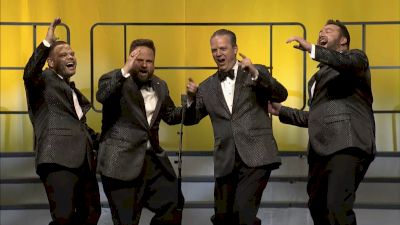 Quorum Tops A Talented Field
Quorum Tops A Talented FieldJul 10, 2022
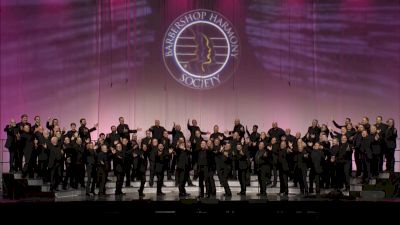 Music City Wins it All
Music City Wins it AllJul 9, 2022
 Stage is Set for Quartet Finals
Stage is Set for Quartet FinalsJul 8, 2022
 Clementones Squeeze in a Varsity Win
Clementones Squeeze in a Varsity WinJul 7, 2022
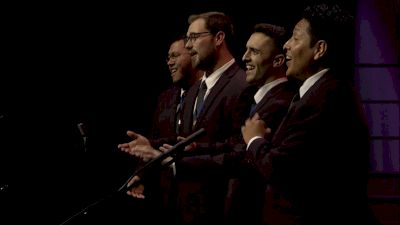 Highlights from NextGen Varsity Contest
Highlights from NextGen Varsity ContestJul 7, 2022
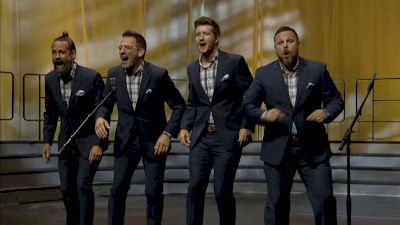 Top 20 Quartets Named at BHS Charlotte
Top 20 Quartets Named at BHS CharlotteJul 6, 2022
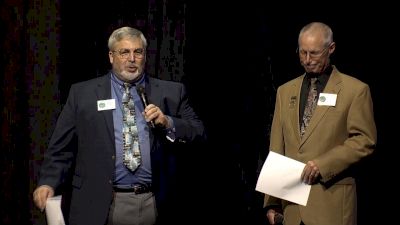 BHS Call Off - Top 20 Quartets
BHS Call Off - Top 20 QuartetsJul 6, 2022
 A Historic Kick Off in Charlotte
A Historic Kick Off in CharlotteJul 6, 2022
 BHS Charlotte - Day 1
BHS Charlotte - Day 1Jul 6, 2022